When researching ancient civilizations such as the rich history of Egypt, what would be the first thing you look for? The most notable achievements? Perhaps a list of ancient rulers and their contributions? While many of those are fun rabbit holes in their own right, it’s also wonderful to hop into the daily life of the Egyptians—peering into subjects such as their favorite food.
Food might not be at the top of everyone’s priority list when researching history, but you can tell a lot about an ancient civilization based on the foods they ate. After all, isn’t it interesting to figure out the food culture of the old world? Let’s dive into foods that ancient Egyptians ate and learn more about their culture as a whole.
Bread, Wonderful Bread

On a side note, the image of the bread above was baked using 4,500 year old yeast. It’s about the closest we can get to the bread the ancient Egyptians had way back in the day! Back to the topic, the Egyptians had plenty of fertile land, and one of the most common crops grown was wheat. Wheat was extremely important to ancient Egyptian society—about as important as it is now—and the Egyptians used the wheat to make bread.
Bread is the single most important food that the ancient Egyptians ate, as everyone ate bread. Even with the various social classes, rich and poor had bread to eat. It was such a common part of the diet that the Egyptians often developed different recipes based on bread.
Mustard Seeds
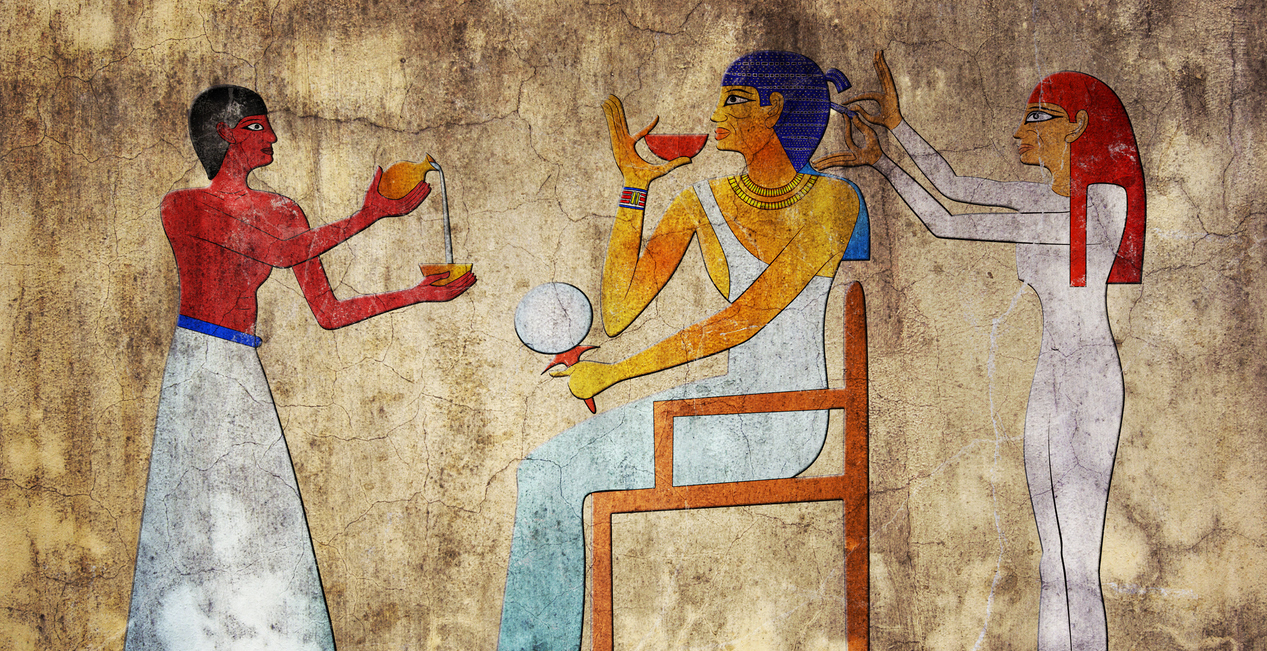
One of the fun things about the ancient Egyptian diet was how willing they were to experiment and see which concoction tasted the best. The Egyptians were known for their various spices, with one of the most popular being mustard seeds. Believe it or not, mustard is an extremely old condiment, and has been enjoyed for thousands upon thousands of years.
The thing with mustard seeds is they had a very powerful taste. As a spice, it had to be mixed with various other ingredients to create different dishes. One of the most interesting is how the Egyptians were responsible for developing honey mustard. They would use honey to dull the blow of powerful mustard, creating a condiment that’s still enjoyed to this day. Some have claimed ownership over the honey mustard recipe, but there’s no taking away from ancient Egyptian fame.
Garlic, the Top Spice
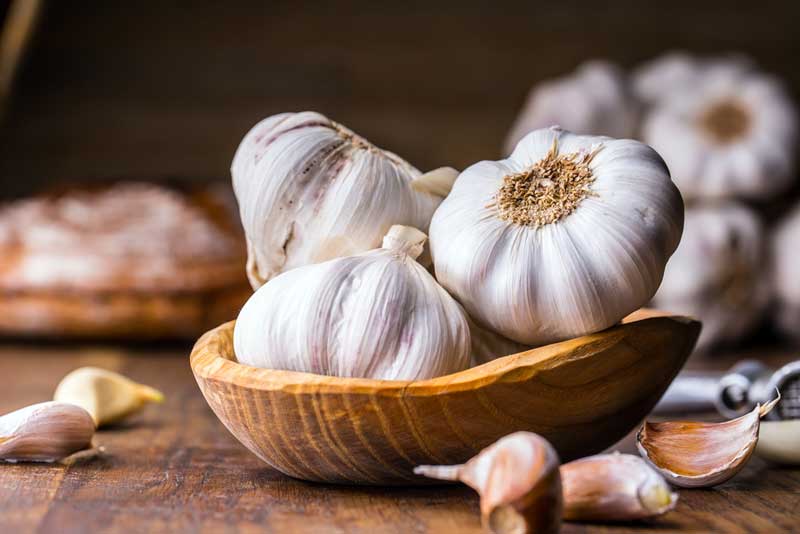
What’s your opinion on garlic? It comes as no surprise that plenty of people love garlic—perhaps even a little too much. While it’s not going to be freshening anyone’s breath anytime soon, there’s no denying that garlic is extremely popular in the modern age. Surprisingly enough, the same thing could be said about the age of ancient Egyptians.
The Egyptians went nuts over garlic. They wanted garlic on just about everything, and they’re probably the originators of garlic bread. Whenever the Egyptians had the chance, they would add garlic on just about anything. They also had a sweet tooth when it came to bread, so the Egyptians had a rather varied palette—an oddity when it comes to ancient civilizations.
Various Spoiled Meats (Yes, Really)
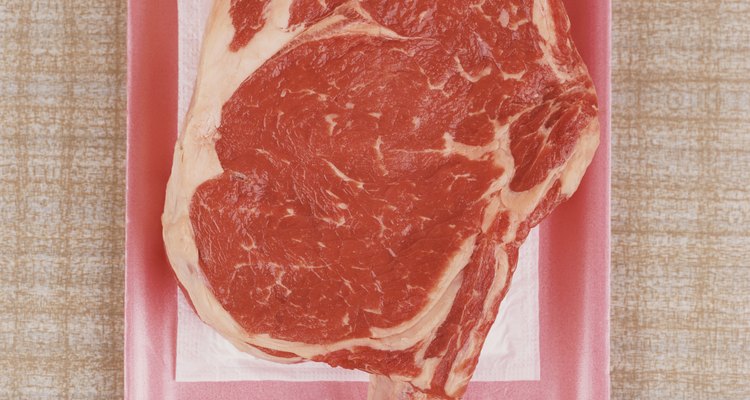
Much like most other ancient civilizations, the ancient Egyptians enjoyed the consumption of various meats to an extent. Unlike the Greeks—where meat was mostly enjoyed by the upper class and the poorer classes would often never get to taste it—most Egyptians had a chance to enjoy various types of meat, though not in the same way we do today.
That said, there was a delicacy back in the day that came from the need to preserve or even mask the putrid effects of spoiled meat. While salt was used often back in the day to help preserve meat, there were some situations where the meat would spoil. Many Egyptians still had the meat, though it was masked with mustard seeds, thyme, and various other herbs and spices. The issue with curing meat came due to the harsh, hot climate of Egypt.
Beer, the Great Partner of Bread

As stated above, the Egyptians loved to eat bread, and they often enjoyed it with various additions, including honey and garlic. However, the great companion of bread during the time of the ancient Egyptians was undoubtedly beer, which they would create using barley. In fact, many Egyptians consumed more beer than they would fresh water, but it’s not necessarily because of an addiction to alcohol.
The simple fact of the matter was that the ancient Egyptians didn’t always have access to fresh water like we do today. To offset such a thing, the Egyptians would enjoy bread with beer—a meal that the average Egyptian family would have in the afternoon.
Poultry and Fish
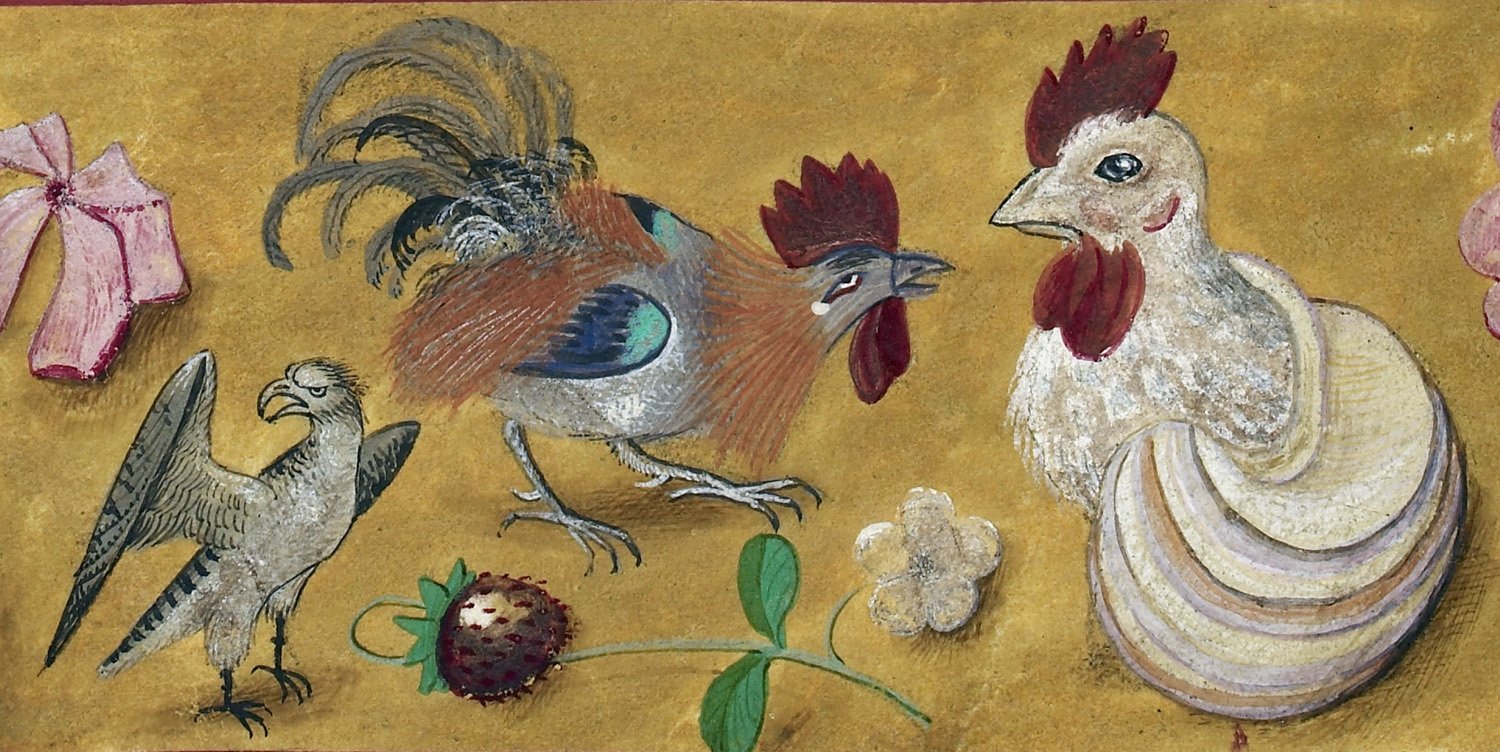
Typically, pork and mutton were eaten by the upper classes of ancient Egypt. Beef was a rare meat often used in festivals and rituals, and was often enjoyed by royalty. When it came to meats that could be regularly enjoyed by everyone, ancient Egyptian fish and poultry were plentiful and relatively easy to catch.
For the average ancient Egyptian, it seemed like the heaviest meal of the day would be in the afternoon. They likely ate two meals—breakfast, and an afternoon mix of lunch and dinner. In this latter, the meal would likely have fish and poultry, as well as the aforementioned bread and beer. Luckily, the Egyptians had plenty of spices to help improve the taste of various meats, which meant the average Egyptian family had quite a lot to look forward to as far as the diet went!
A Variety of Veggies
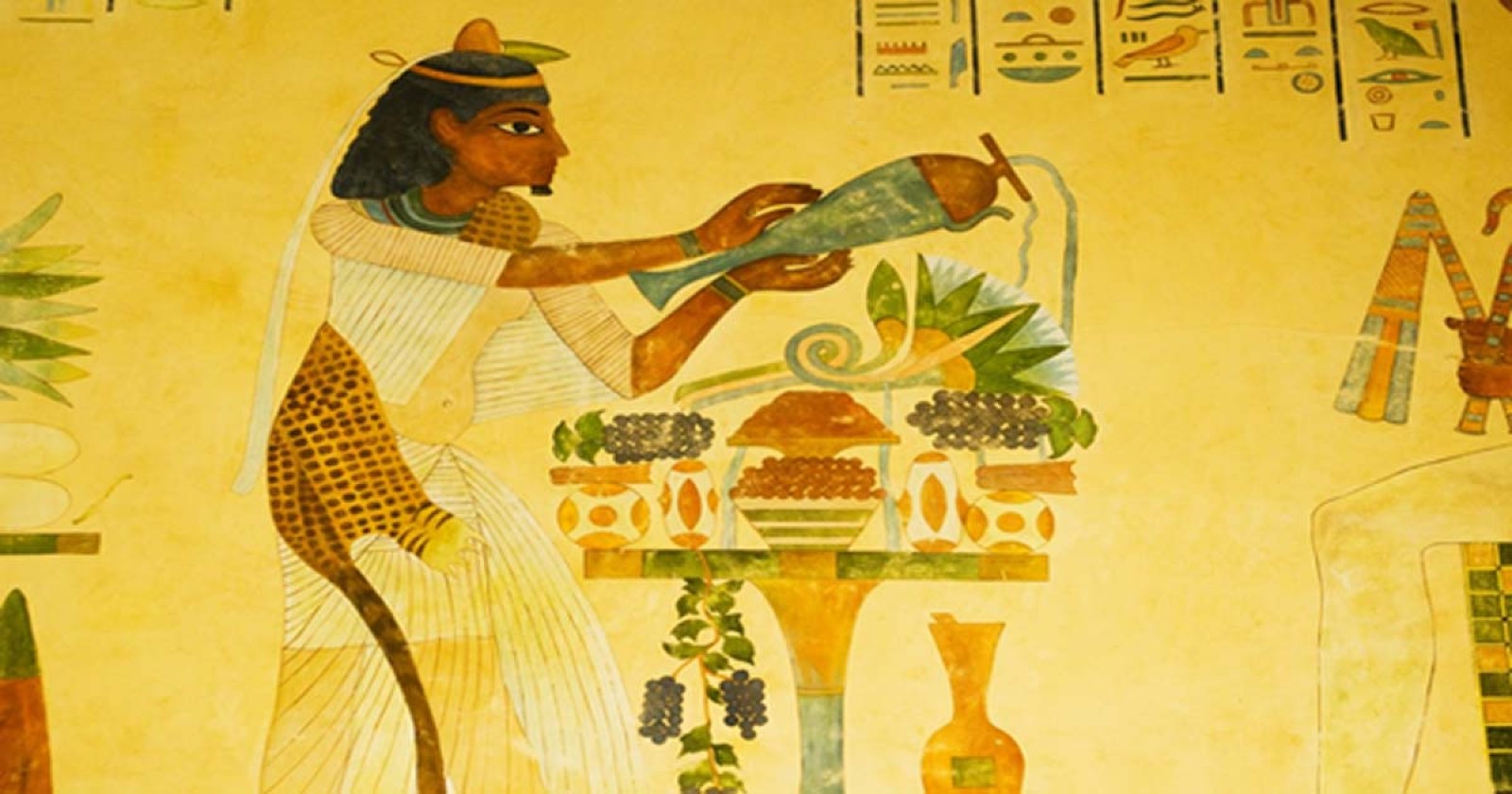
While meat was commonplace in ancient Egypt in the form of poultry and fish (and a few other exotic meats), the culture doesn’t revolve around meat consumption. Like many other ancient civilizations, they focused more on the things they could grow through crops, which was why bread was so popular. There were also various types of vegetables that the average Egyptian family enjoyed.
These veggies included leeks, garlic (of course), onions, lentils, lettuce, beans, cabbages, radishes, turnips, and more. Despite the hot, harsh climate of the ancient Egyptian landscape, there was no denying that the land was quite fertile. Ancient Egyptian irrigation also allowed them to handle fields of crops farther away from water sources. It was a relatively healthy diet due to the abundance of vegetables.
The Hippopotamus (Really)
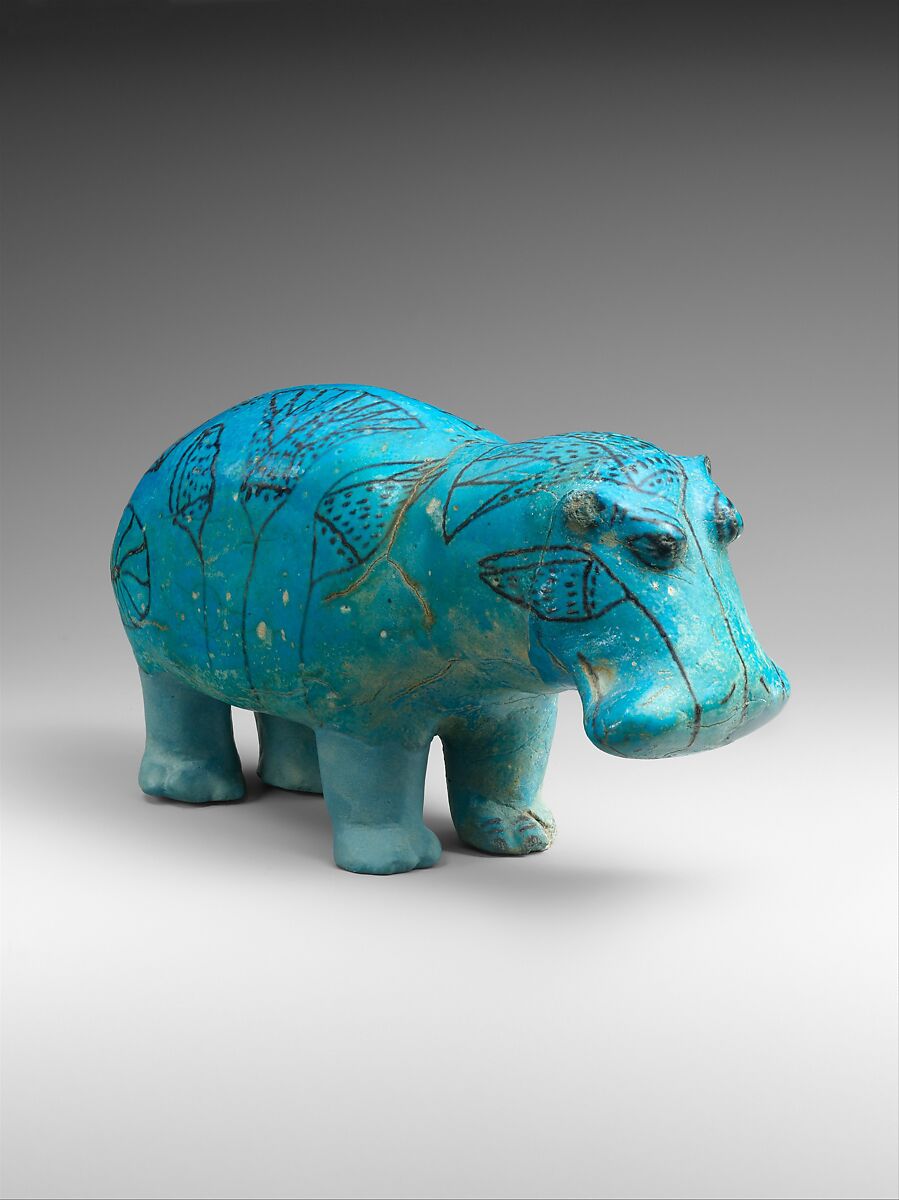
I don’t think it needs to be said how dangerous a hippopotamus can be. The ancient Egyptians had a tendency to hunt these animals for their meat and bones which were used for various things. Even a single hippo can be extremely dangerous to hunt, yet the ancient Egyptians had no qualms hunting such an animal. Even with the abundance of other animals that could be easily hunted, it’s interesting that they went for the hippo.
To put things into perspective, the hippo is considered one of the most dangerous species on earth. Even with guns, they can be extremely deadly. To think that the ancient Egyptians took them down with weapons from the old world is mind boggling to say the least. It must’ve taken a gargantuan amount of effort!
Fruits for Dessert
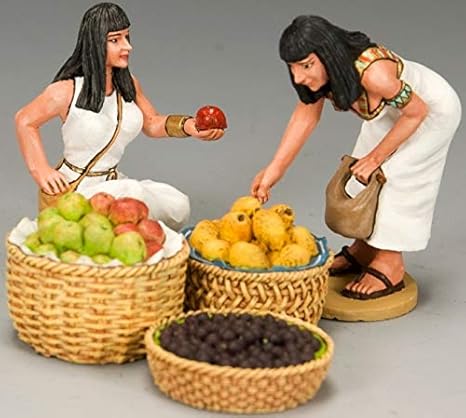
Similar to the modern day, the ancient Egyptians were fond of desserts. They have a sweet tooth, and so many of them ended the meal with desserts. While we’ll deep dive into the topic of the more complicated desserts, let’s start with the most common scenario. For the typical Egyptian household that just finished the main meal, they’re likely to have bread and honey as dessert.
Aside from bread and honey, most ancient Egyptian households have plenty of fruits due to the fertile lands able to grow all sorts of things. These fruits include figs, melons, grapes, and more. Some ancient civilizations would consider themselves lucky to have such an abundance of fruits and vegetables!
Cakes and Various Pastries

One of the interesting things about the ancient Egyptian civilization was their love of all things sweet. The Egyptians had a creative streak, and they spent plenty of time looking for the best ways to make bread as sweet and delicious as possible. The Egyptians had access to honey, as well as various fruits to help make for some delicious pastries.
While pastries were relatively uncommon in the age of ancient Egypt, it could still be found in the many banquets served to the royalty. Sweet cakes were often made with figs, honey, and bread. Even the average ancient Egyptian household had access to many of the ingredients needed to make sweet pastries, which they likely would have made to celebrate special occasions. It might not have been made often, but the Egyptians had quite the sweet tooth.